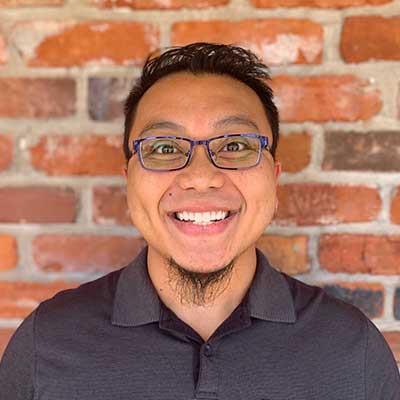Contemplation in the Age of Constant Content
May 30
/
Dominic Abaria

Contemplation in the Age of Constant Content
We are drowning in information, while starving for wisdom. -E.O. Wilson
Recently, I lost the battle for my attention and time. I opened my phone to check a text message. Caught by a notification, I opened a different app, which turned into a scroll through headlines, which led to a quick look at a friend’s TikTok video, which somehow led to 20 minutes of survival camping and chess videos on YouTube.
By the time I looked up, I had lost an hour of my time, felt disoriented, and realized I had failed to respond to the text message that began this whole ordeal. Upon reflection, I wasn’t refreshed or informed. I was full of content but hollowed out in spirit.
It happens so easily. What begins as curiosity turns into consumption, and what feels like connection dissolves into fragmentation. Have you ever experienced this?
We are not short on information. We are short on meaning.
Noise As the Norm
We live in a time where there is always something playing, streaming, updating, or pinging. In some ways, this abundance is a gift. We can learn quickly, communicate seamlessly, and access ideas that were once locked away in academic halls. But in this constant flow, our souls often get swept away.
In a world that rewards reaction, contemplation seems inefficient. It is slow, quiet, and hidden. It does not generate followers or feed algorithms, but it does grow roots.
Contemplation isn’t about withdrawing from the world. It is about learning to see the world truthfully and tenderly. It is a way of being present to God, others, and ourselves without performance or pretense.
The Wisdom of Stillness & Silence
Thomas Merton once wrote, “Contemplation is the highest expression of man’s intellectual and spiritual life. It is that life itself, fully awake, fully active, fully aware that it is alive.”
That phrase, “fully awake,” catches me because much of what passes as engagement in our world today is more like sleepwalking. Our attention is scattered, our responses are conditioned, and our inner world gets drowned in the noise of opinions and information.
Contemplation awakens us. It does not offer escape from the real but entry into the real with fresh eyes. It is the space where we learn to notice again, where we remember who we are, and where we become aware of the sacred hidden in the ordinary.
Resisting the Drift
If we are not intentional, we will drift. We will confuse more data with deeper understanding. We will take in endless commentary without ever cultivating our own voice. We will seek wisdom in places that only offer reaction.
But the contemplative path calls us to resist the drift. Not with effort, but with attention. With spaciousness. With presence. When we stop chasing novelty, we might begin to notice the texture of grace in our daily life. When we learn to be still, even briefly, we recover our soul's dignity.
Formed by Attention
Spiritual formation is not just about what we believe. It is about what we attend to. We are formed by whatever holds our gaze. If we spend our days consumed by speed, spectacle, and distraction, our inner life will reflect that. But if we learn to attend to the quiet voice of God within and around us, we will be formed by love, patience, and truth.
This is not something we master. Spiritual formation is the craft of letting God master us through attention and devotion. Contemplation is not a skill for the spiritually elite. It is a posture available to every ordinary person who desires to live awake in a world that numbs.
An Invitation to the Quiet
In a culture where content floods every corner of our lives, contemplation is not just countercultural. It is essential.
Not because silence is trendy, but because our souls need space to breathe. Not because we are above the noise, but because we long to hear a voice that is deeper than the noise. May we become people who are not just filled with information but shaped by wisdom. Not just reactive, but receptive. Not just scrolling, but truly seeing.
The contemplative path is not a technique. It is a way of being rooted in God in a world that moves too fast. It is a way of hearing God in the stillness. Can you enter into the silence with me today and find God's still, small voice amid the noise? Will you choose to resist the flood of content and choose to root yourself in God, the source of all true life and meaning? My encouragement to you is to journey with a spiritual director, a companion who can help you navigate the tumultuous waters of this digital age to find the God who still beckons and calls to your heart.
We are drowning in information, while starving for wisdom. -E.O. Wilson
Recently, I lost the battle for my attention and time. I opened my phone to check a text message. Caught by a notification, I opened a different app, which turned into a scroll through headlines, which led to a quick look at a friend’s TikTok video, which somehow led to 20 minutes of survival camping and chess videos on YouTube.
By the time I looked up, I had lost an hour of my time, felt disoriented, and realized I had failed to respond to the text message that began this whole ordeal. Upon reflection, I wasn’t refreshed or informed. I was full of content but hollowed out in spirit.
It happens so easily. What begins as curiosity turns into consumption, and what feels like connection dissolves into fragmentation. Have you ever experienced this?
We are not short on information. We are short on meaning.
Noise As the Norm
We live in a time where there is always something playing, streaming, updating, or pinging. In some ways, this abundance is a gift. We can learn quickly, communicate seamlessly, and access ideas that were once locked away in academic halls. But in this constant flow, our souls often get swept away.
In a world that rewards reaction, contemplation seems inefficient. It is slow, quiet, and hidden. It does not generate followers or feed algorithms, but it does grow roots.
Contemplation isn’t about withdrawing from the world. It is about learning to see the world truthfully and tenderly. It is a way of being present to God, others, and ourselves without performance or pretense.
The Wisdom of Stillness & Silence
Thomas Merton once wrote, “Contemplation is the highest expression of man’s intellectual and spiritual life. It is that life itself, fully awake, fully active, fully aware that it is alive.”
That phrase, “fully awake,” catches me because much of what passes as engagement in our world today is more like sleepwalking. Our attention is scattered, our responses are conditioned, and our inner world gets drowned in the noise of opinions and information.
Contemplation awakens us. It does not offer escape from the real but entry into the real with fresh eyes. It is the space where we learn to notice again, where we remember who we are, and where we become aware of the sacred hidden in the ordinary.
Resisting the Drift
If we are not intentional, we will drift. We will confuse more data with deeper understanding. We will take in endless commentary without ever cultivating our own voice. We will seek wisdom in places that only offer reaction.
But the contemplative path calls us to resist the drift. Not with effort, but with attention. With spaciousness. With presence. When we stop chasing novelty, we might begin to notice the texture of grace in our daily life. When we learn to be still, even briefly, we recover our soul's dignity.
Formed by Attention
Spiritual formation is not just about what we believe. It is about what we attend to. We are formed by whatever holds our gaze. If we spend our days consumed by speed, spectacle, and distraction, our inner life will reflect that. But if we learn to attend to the quiet voice of God within and around us, we will be formed by love, patience, and truth.
This is not something we master. Spiritual formation is the craft of letting God master us through attention and devotion. Contemplation is not a skill for the spiritually elite. It is a posture available to every ordinary person who desires to live awake in a world that numbs.
An Invitation to the Quiet
In a culture where content floods every corner of our lives, contemplation is not just countercultural. It is essential.
Not because silence is trendy, but because our souls need space to breathe. Not because we are above the noise, but because we long to hear a voice that is deeper than the noise. May we become people who are not just filled with information but shaped by wisdom. Not just reactive, but receptive. Not just scrolling, but truly seeing.
The contemplative path is not a technique. It is a way of being rooted in God in a world that moves too fast. It is a way of hearing God in the stillness. Can you enter into the silence with me today and find God's still, small voice amid the noise? Will you choose to resist the flood of content and choose to root yourself in God, the source of all true life and meaning? My encouragement to you is to journey with a spiritual director, a companion who can help you navigate the tumultuous waters of this digital age to find the God who still beckons and calls to your heart.

Dominic Abaria
Dominic Abaria is a pastor, spiritual director, and founder of Fermata Ministries, where he helps people slow down and encounter God in unforced rhythms of grace. With a Doctorate in Ministry and years of experience as a chaplain, formation guide, and seminary professor, Dominic brings theological insight and pastoral presence to his work.
He’s passionate about spiritual formation, burnout recovery, and helping others live with freedom, focus, and faithfulness.
Dominic lives in Portland, Oregon with his wife and three kids, and he’s probably drinking bubble tea while dreaming up his next big idea.
Dominic Abaria is a pastor, spiritual director, and founder of Fermata Ministries, where he helps people slow down and encounter God in unforced rhythms of grace. With a Doctorate in Ministry and years of experience as a chaplain, formation guide, and seminary professor, Dominic brings theological insight and pastoral presence to his work.
He’s passionate about spiritual formation, burnout recovery, and helping others live with freedom, focus, and faithfulness.
Dominic lives in Portland, Oregon with his wife and three kids, and he’s probably drinking bubble tea while dreaming up his next big idea.

